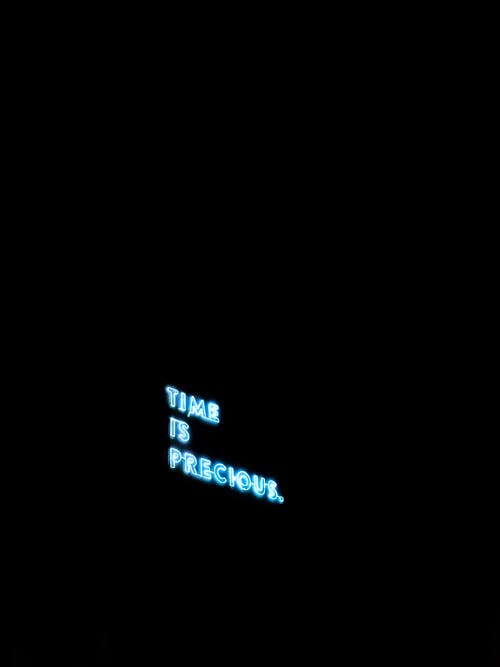A few months ago, I watched a movie with a friend that included a few scenes where they juxtaposed certain situations the character found himself in against his expectations going into those situations.
“Expectation” vs “reality”.
It was a cool concept!
I’ve since occassionally enjoyed creating my own “expectation” vs “reality” scenarios inside my mind.
And it is this concept that sparked the inspiration for this blog post.
In this blog I’m going to use 3 examples of my expectations as to how I thought recovery would go as I went into it and what I thought was going to work versus 3 examples of the reality of how it did go and what actually did work.
Spoiler alert, they were not the same!
What I Tried:
- Doing More

I held onto the hope that the more I did the more anorexia nervosa would be squashed out of my life.
I held onto the hope that surely, I could do enough things that there simply wouldn’t be sufficient time or space for an eating disorder.
Travel, study, friendships, sex, running, working, gardening, cooking, cleaning… I threw myself into it all.
The only thing this really did was distract me from the eating disorder and anything that distracts you from anything, including an eating disorder, has the annoying side effect that it is just that a distraction, a momentary relief and when you’re no longer wrapped in that behaviour nothing much else has changed. Aka the eating disorder is still very much there because it never left, you just weren’t focused on it.
Anyone who has been through recovery from an eating disorder will tell you the point at which the eating disorder decides it’s time to leave your life because you’re simply too busy for it will not come.
An eating disorder can exist very well amongst all the things you do.
No matter how many things you decide to do.
In fact, in many ways the more things you do the more likely the eating disorder is to persist.
Many people with eating disorders do a lot, often more than others and certainly more than they “should” and I would argue that this is a part of the problem.
If you need to be distracting yourself from your life in order to deal with the reality of your life it might be worth taking a look at how to build a life you no longer need distractions from… and believe me if you’ve lived with an eating disorder for any extended period of time or you’ve never learned to express your needs or even know what your needs are that is going to be tough.
Tough but possible.
What Actually Worked:
Doing Less

In the end the thing that actually “worked” aka allowed me to develop the ability to recover and move on from life as an eating disorder (and it really did feel like that more often than not, that I was life as an eating disorder not life with an eating disorder) was dropping many of these things, taking more moments for me and focusing on the eating disorder.
Yes, focusing on the eating disorder.
It was every part as uncomfortable as my imagination told me it would be (plus some) but you know what I learned through all of that was that life is uncomfortable with or without an eating disorder (in different ways) and most of all I learned that I am able to deal with the uncomfortableness. I learned life wasn’t easier than I imagined but that I was much stronger than I imagined.
It starts with doing less, slowing down and focusing on you because healing won’t happen as a by-product of distraction or by accident as you go about making your life increasingly busier.
Recovery takes a deliberate choice.
And it takes time, energy, and effort to increasingly consistently choose that path.
What I Tried:
2. Wanting Others to Understand

When I lived with anorexia nervosa, I had an overwhelming conviction that I was different.
Life was hard, people were unkind, and the world was scary.
I had this omnipresent underlying sense that I was alone.
I couldn’t tell you the number of times I thought, mumbled ashamedly or yelled through tears of frustration “I just want to be normal”.
I couldn’t tell you the number of times I’ve heard those exact same sentiments reflected back to me from the mouths of numerous people I’ve now worked with as they navigate their own recovery. As they consider just how to go about dealing with being a part of a world that sometimes appears to filled with so much pain and fear.
“I just want to be normal” is a line I haven’t heard myself say in many years.
It’s not even something I think anymore.
Life’s tough, my gosh it is tough. Just when you think you’ve heard the most horrible thing or that something is so bad it feels surreal there’s more.
And yet somehow humans go on because sometimes all we can feel and hear about is the hurt and the pain, but the truth is there is so much more love and kindness in the world than we can imagine.
Today I go through hard things. A few months ago, I made an incredibly hard decision to leave a relationship with a man I loved deeply.
The pain of that is real and raw and at the same time it didn’t consume me like it once would have.
At the same time as the sadness and the discomfort of questions I’ll never know the answers to, I stay true to myself.
What Actually Worked:
Letting Go of the Need for Anyone Else to Understand

I realised my need for acceptance from the outside world, my need for people to understand was simply so they could treat me differently and if they treated me differently I could feel and behave differently.
So, ultimately my goal, my longing was to feel and behave differently.
Clinical hypnotherapy helped me to realise my ability to feel and behave differenely was never and will never be dependent upon others treatment or thoughts about me.
Clinical hypnotherapy allowed me to go on to be in the position I am in today of genuinely loving myself.
An experience of life nowhere along the line of recovery did I ever think I’d ever be able to say let alone authentically feel.
It wasn’t particularly a goal of mine.
It happened naturally through the work I did to recover because when you’ve fully recovered from an eating disorder you realise you didn’t recover just for you. You recovered for every human being on this planet past, present and future who has, is and will ever struggle and the utter appreciation for the body and the mind you created is out of this world.
Not only that but I have a healthy acceptance that there isn’t really a normal and if there is it doesn’t seem a concern like it once was that I strive for that.
I’m me.
Imperfect as the next person but endlessly growing.
What I Tried:
3. Educating My Way Out

I love learning.
When it came to anorexia nervosa, for many reasons it took me a long time to learn much about it.
Firstly, I didn’t relate to the textbook definitions of being afraid of being fat, of purposefully trying to lose weight. My experience of anorexia was that it felt normal. It felt hard to go against it. I never once tried to lose weight or tried to not eat. It just felt horrible to eat.
Eventually, during a hospitalisation where it was clear no one knew what to do with me and I was in that bed basically waiting to see if I lived or died.
I decided to learn all I could.
I remember patiently putting the electrocardiogram (ECG) leads on myself in that same hospital because the nurse and doctor couldn’t work it out.
I remember knowing the exact calculations of the surplus of calories necessary to gain a kilogram a week.
I knew more about the nitty gritty of the biochemical reactions of refeeding syndrome, the thermal effect of food, the hypermetabolism and so on than I know now.
The thing about learning is it feels so good for human beings.
It feels like we’re doing something productive but there is no real value in what we learn if it all stays inside our minds, and we don’t ultimately use those learnings in the real world.
There is a place for gaining knowledge about what an eating disorder is and how to recover but ultimately you can’t educate yourself out of an eating disorder.
It’s not necessary to know everything in order to recover.
In fact, it’s necessary to do recovery long before you know everything.
There are so many things I’ve only been able to understand in hindsight and if I’d waited to understand them before I recovered, I’d never have made it.
And then there are so many things I wanted to understand and be certain on before I recovered which I now don’t care about at all. The answers don’t interest me any longer.
What Actually Worked
Stepping from Knowledge into Action

The “what if’s” of recovery will keep you in the eating disorder forever.
When you’re caught up in the daily battle that is recovery from an eating disorder you can’t possibly believe it will be worth it. You can’t possibly know how it is all going to turn out. You can think about it, fret over it, obsess over it and plan it to the nth degree but recovery from an eating disorder doesn’t care about your plans and at some point, if full recovery really and truly is your goal you are going to have to take the leap from acquiring knowledge and insight to doing.
Have a plan, have goals but know that these are directions and overall themes because no plan survives first contact with reality.
As cliché as it sounds “You don’t have to see the whole staircase just take the first step”
What Now? How Can I Use This Information?…

If you are serious about recovering from the eating disorder and moving on with your life first, please know this is possible.
Recovery is possible for everyone but possible is far from guaranteed.
It’s just a series of daily choices that make it far more likely you will recover.
If you are serious about recovering from the eating disorder, feel welcome to use the suggestions, I’ve given you in this or any other blogs on my website but ultimately you must make the investment of time, energy, money, and effort.
Your recovery and your life on the other side of recovery are entirely unique to you and my journey will only ever be one example of what’s possible.
You must find what works for you.
This is your path, now.
This is your life, now.
With my whole heart I hope you found this information useful and inspiring.

Become Great. Live Great.
Bonnie.



